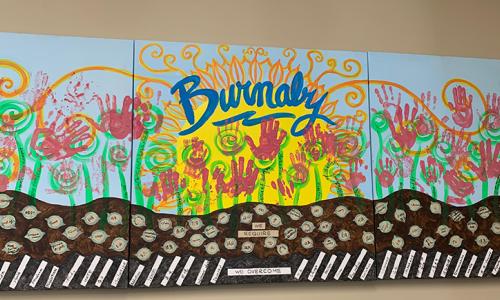
If Justin could describe his international co-op experience in one word, it would be AWESOME! He got a unique opportunity to work with the Singapore Youth Olympic Games in Summer 2010 as a multimedia producer.
Justin's role was to manage all the multimedia projects that would be shown onscreen during the ceremonies. He worked with a team of animators, artists and film makers as well as the film director closely to help bring all these concepts alive on screen. His day-to-day work was running the department, this included securing talent, hiring people for various positions and ensuring all the rendered content was completed on time to be passed to the technical department. There were lots of technical and system rehearsals to ensure that all the content is displayed conceptually and visually in a professional manner without any problems.

When he was sharing the experiences he had on his co-op term, I noticed that he stressed the importance of having an open mind, diving into new experiences and networking.

Why should you go on International Co-op?
Justin: It's always different working in a different country. The Practices, the environment, the experiences, the people that you meet, the cultures will be different and because of that, you are put into a position whereby you're no longer in your comfort zone and then you learn how to work in that manner. In relation to me, being a designer it's always nice to see and experience new things to keep yourself more knowledgeable and wiser. International Co-op is definitely a good platform for you to experience that.
How did you find your International position?
Justin: Well, I was actually working in a few national celebration projects before I worked on this and I got to know the director from my previous projects who was also working on the Olympics, and after I came here, I was sort of like keeping in contact with him, and he asked whether I wanted to come back and help him out with this. So I said, okay, sure, why not? Couldn't miss this opportunity!

What was one of your memorable moments?
Justin: It was the actual opening ceremony itself – looking at how everything ran, and watching the expressions of people, like the audience really enjoying the show. After that, having a representative from Nanjing coming down to tell me that the show was really of great quality. They couldn't believe that it was done by a small team of 20, and not just a small team of 20 people, but youth ranging from 17 to 21 years old who were young and brand new to the industry. They were surprised that the quality of the work we did was so polished.
Has this experience abroad changed your career or educational goals? How has this work term fit into your SFU Co-op experience as a whole?
Justin: I didn't actually change my career goals because I already decided what I wanted to do before I went on a co-op. However, it certainly gave me a good taste of what the industry is actually doing, whether or not this is something I want to do for real. I was put in a job and treated as a full-time employee rather than just an intern, so it gave me more and a different kind of responsibility. It certainly helped me make a final resolve of whether this is something that I want to do in the future.

What is next for you?
Justin: I'm a designer by training but I want to get into design project management. Coming from the perspective of a designer, I think that's very unique so far. Also, I want to deal with more projects that are beyond just traditional design, but instead using design to solve issues such as water, famine and so forth. I want to see how design and creative ideas can be brought to fix these issues. So hopefully I'll do more International Co-op in that sector or something that's relatable. I'm always open to different experiences to supplement my career goals, and International Co-op was the jumping off point to get me started!
What would be the one piece of advice you would give to students who are thinking about International Co-op?
Justin: Keep an open mind when going overseas, experience different cultures, try to understand and accept the differences, learn from each other and return to Canada with a supplementary or renewed sense of what you want to do.














